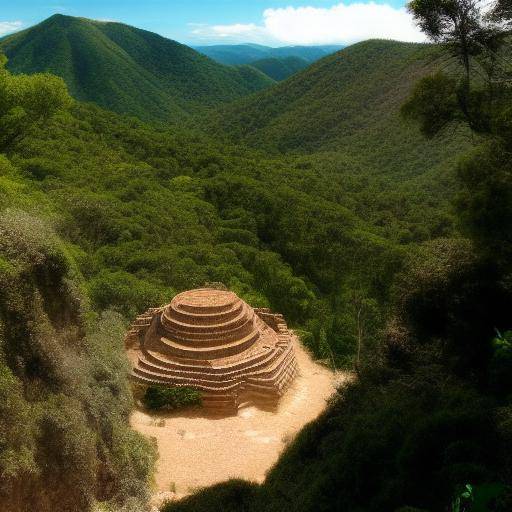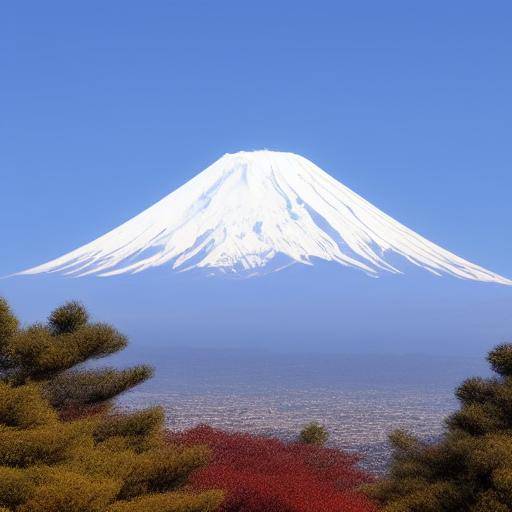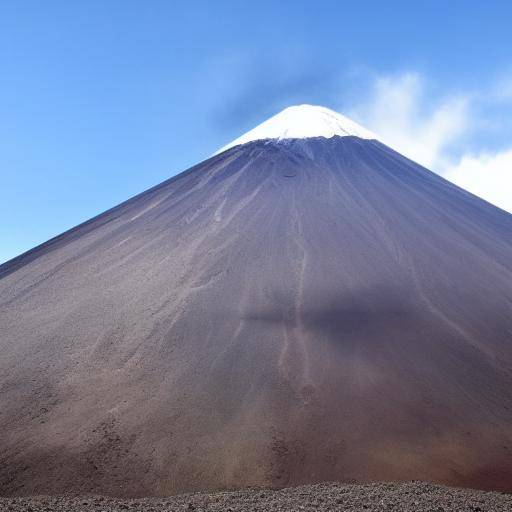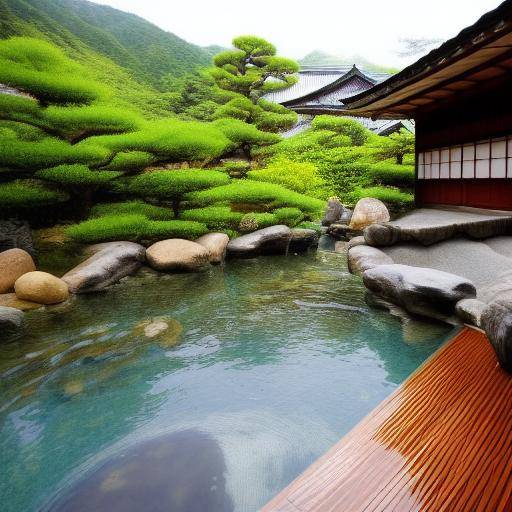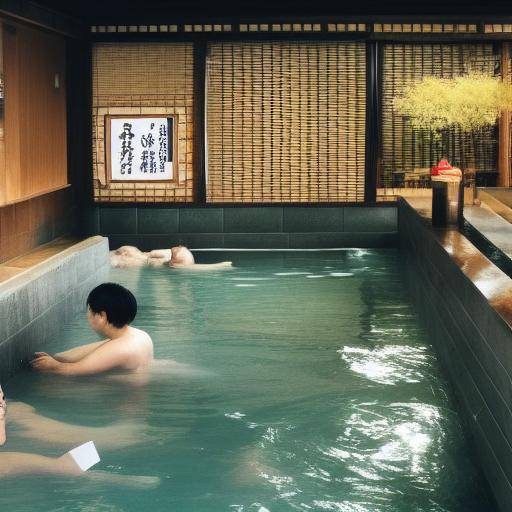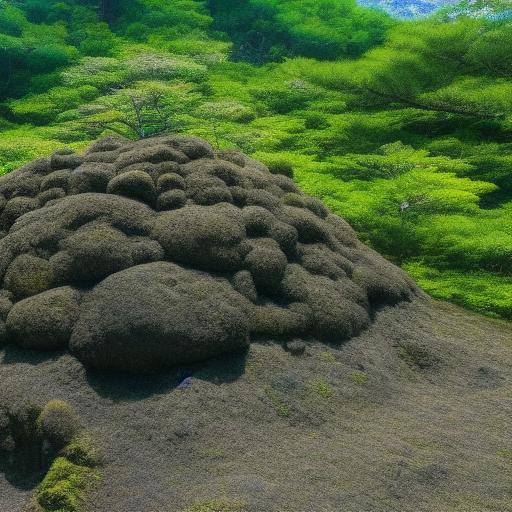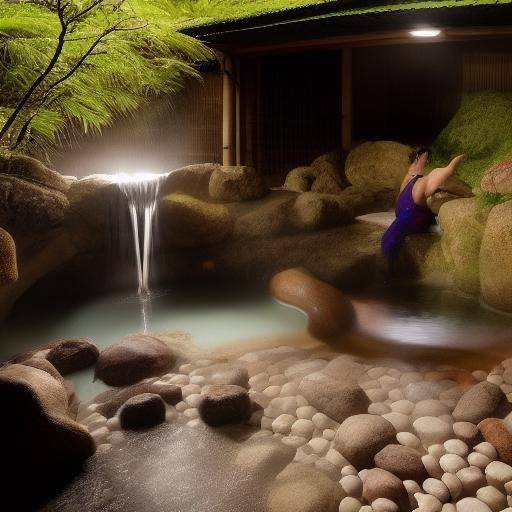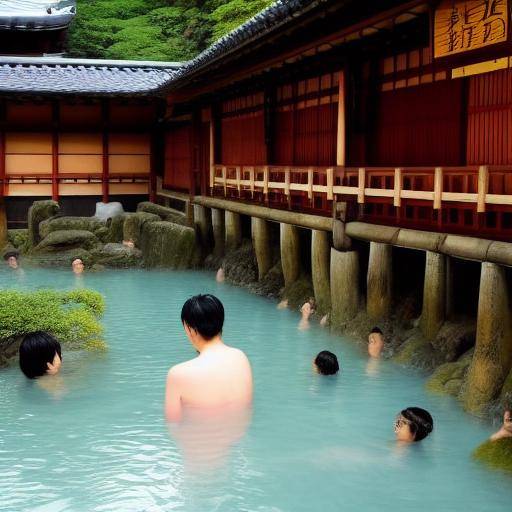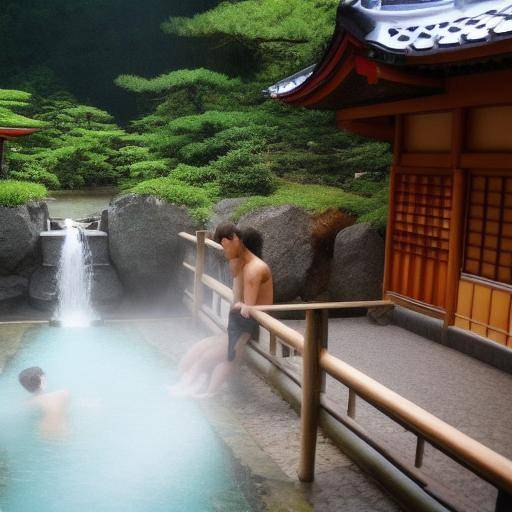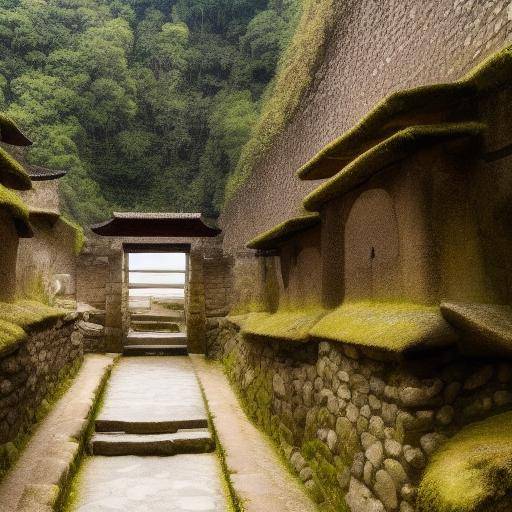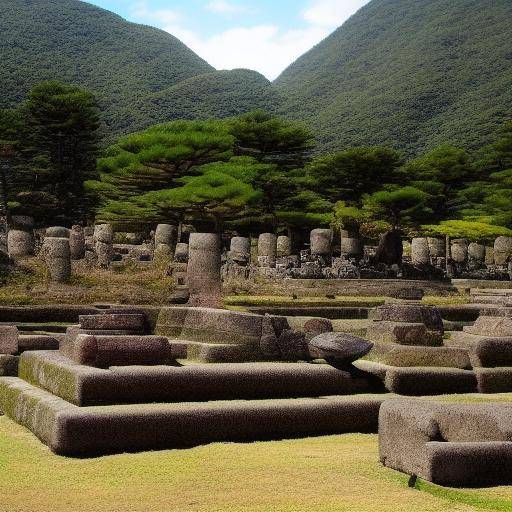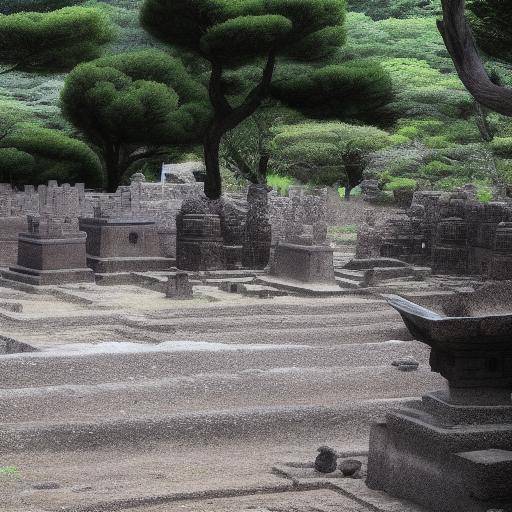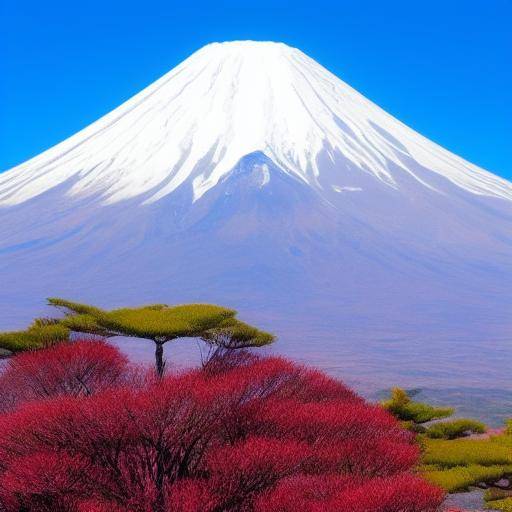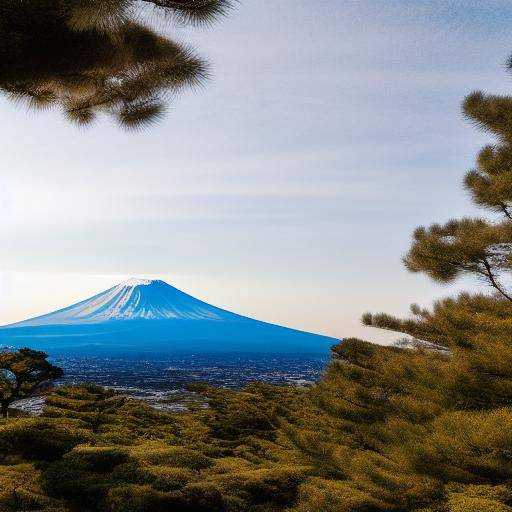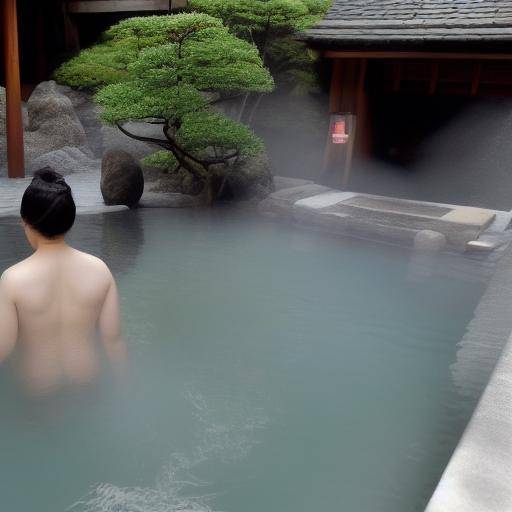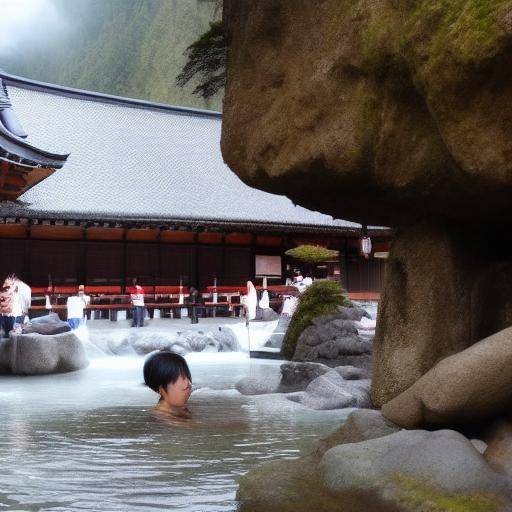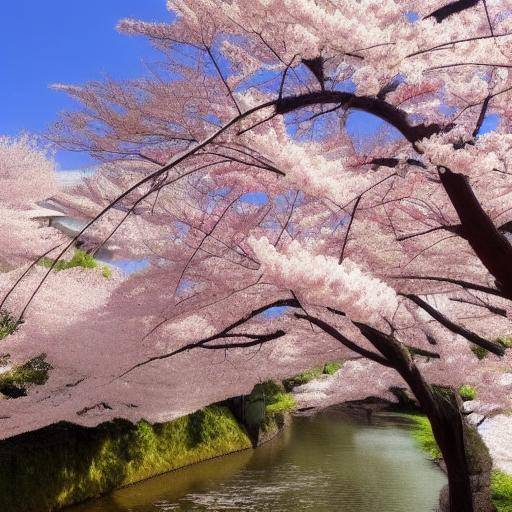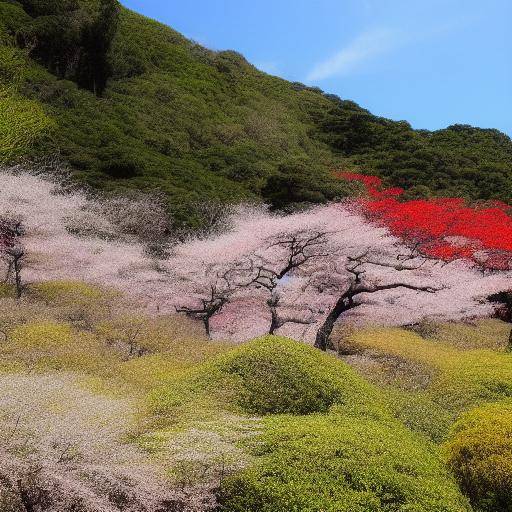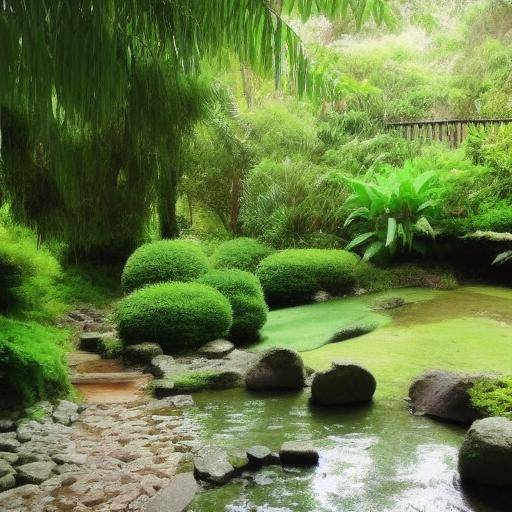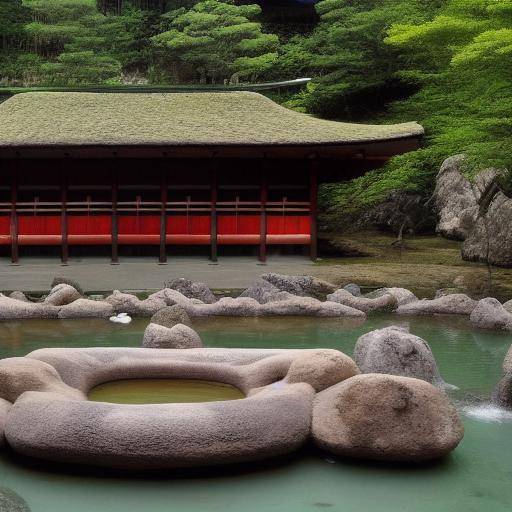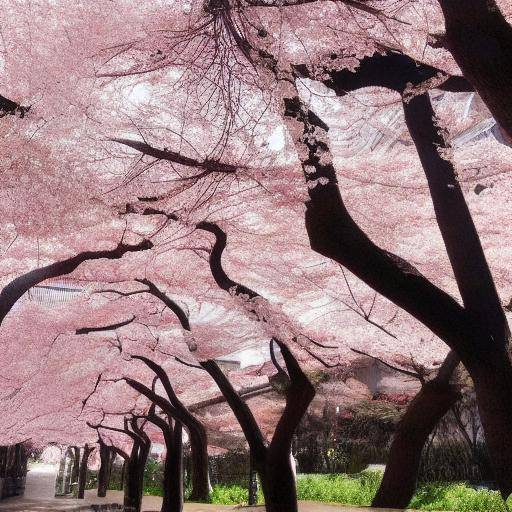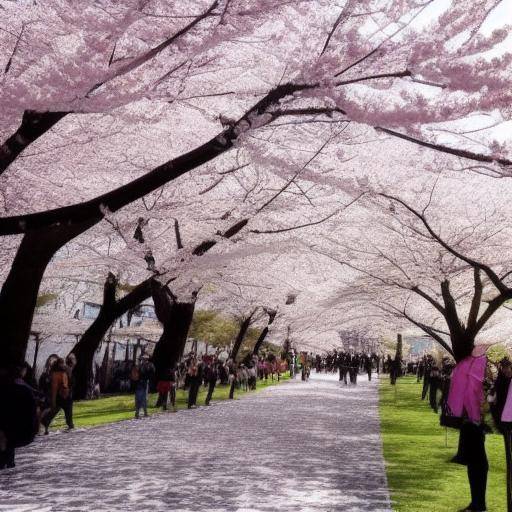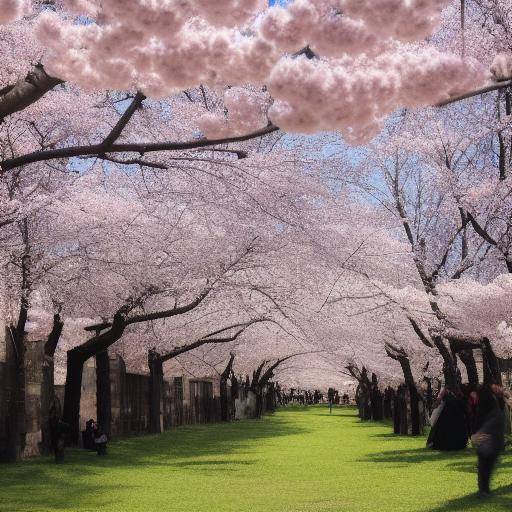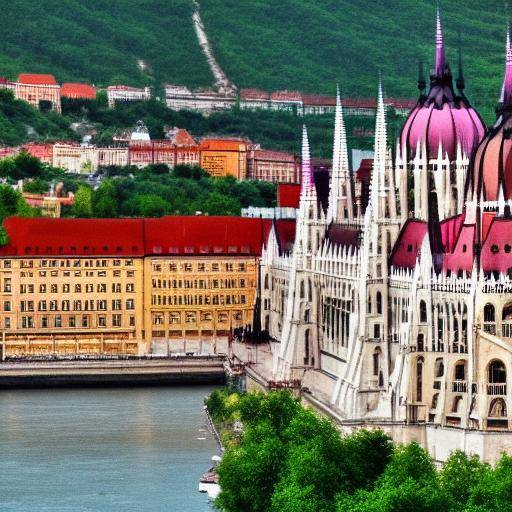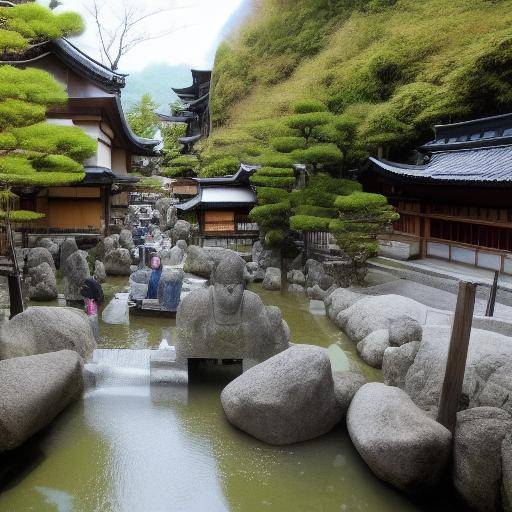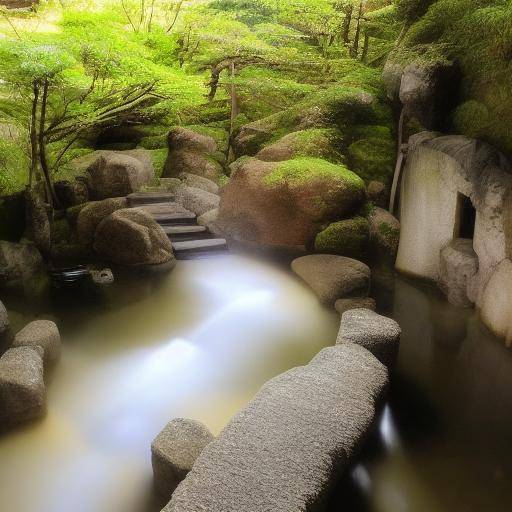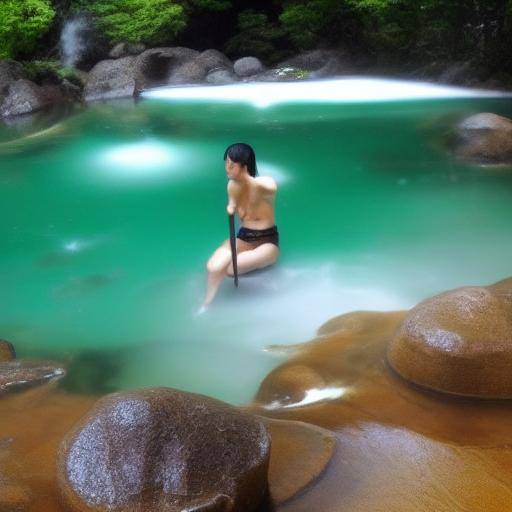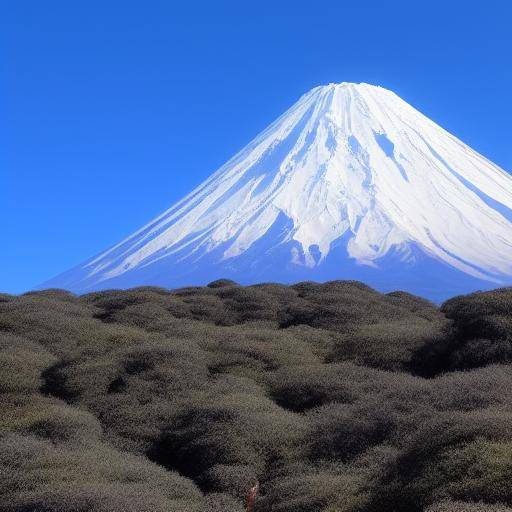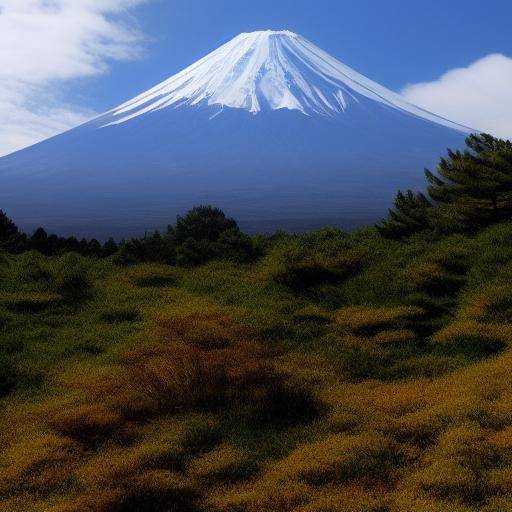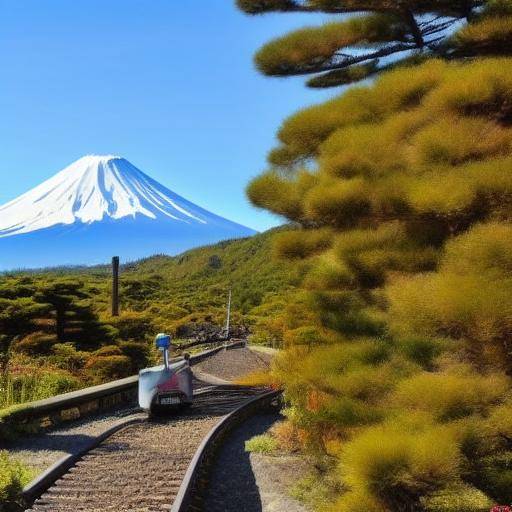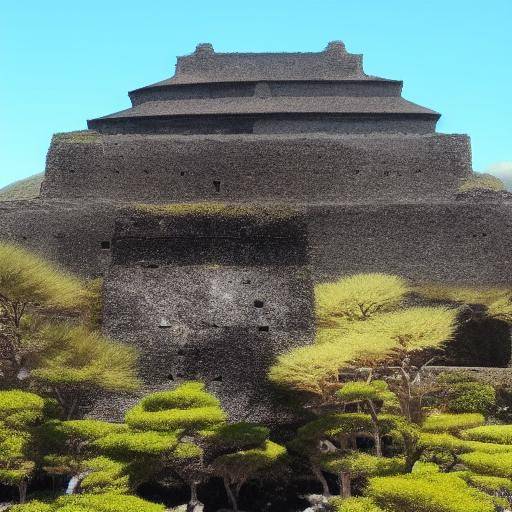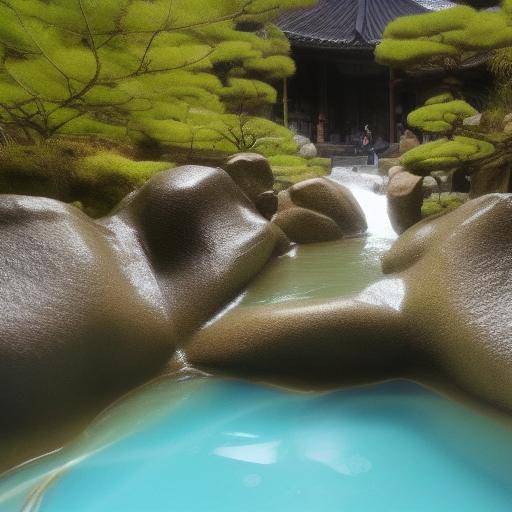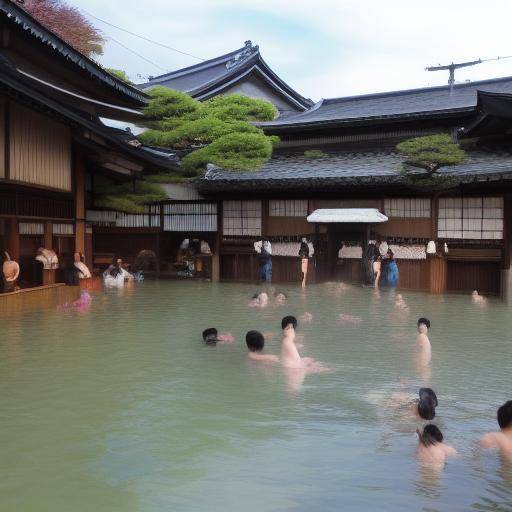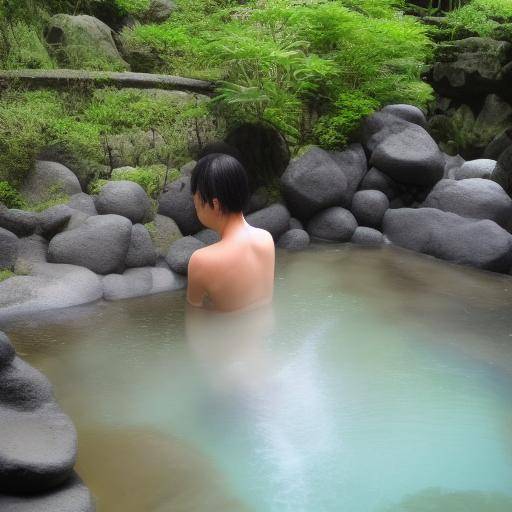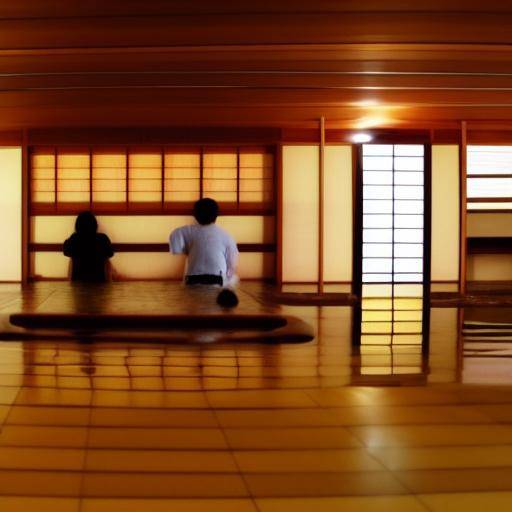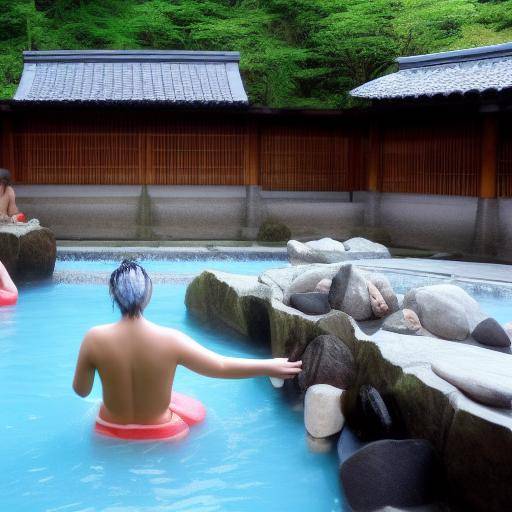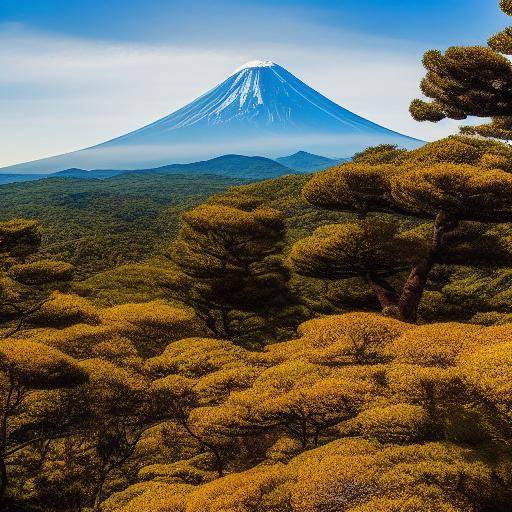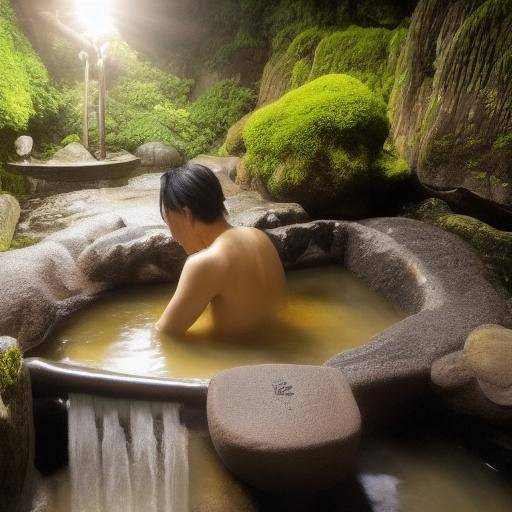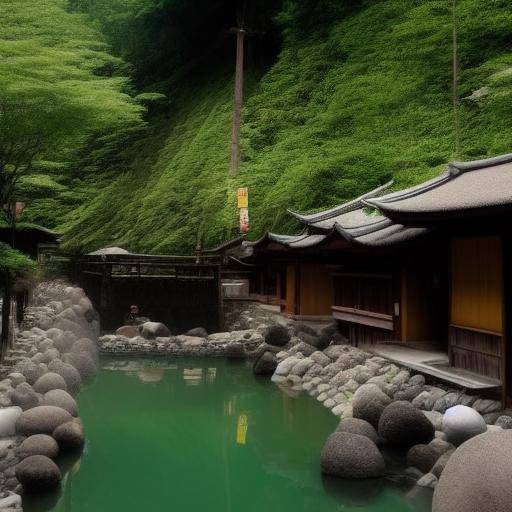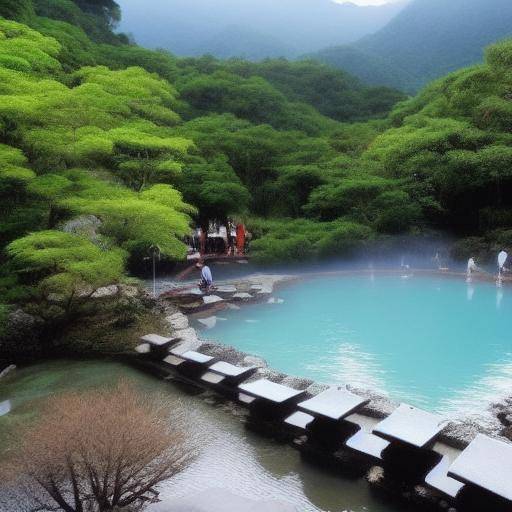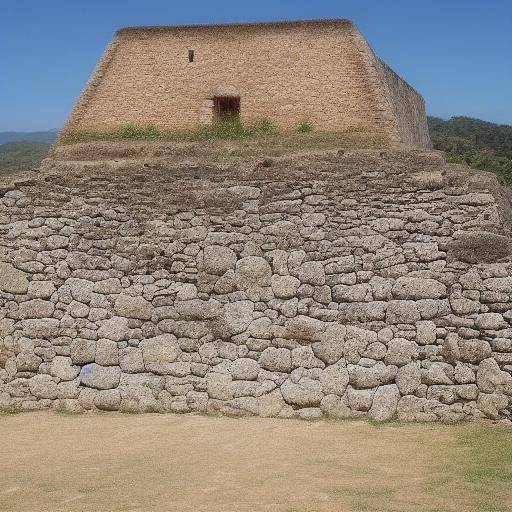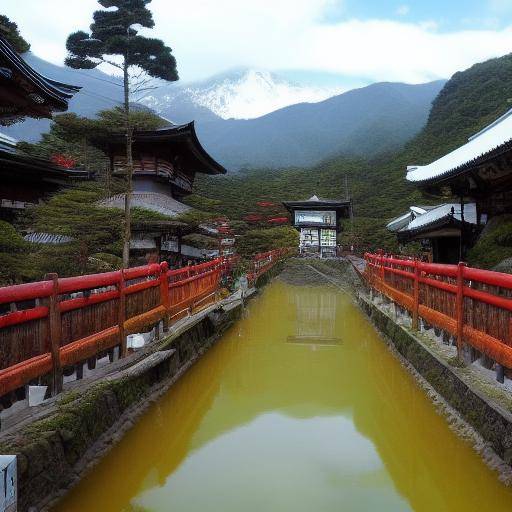
In Japan, immersed in natural thermal waters, known as "onsen", is an ancient tradition that goes beyond mere physical relaxation. In this article, we will explore the rich history of the onsen, the Japanese culture that surrounds them and how these thermal baths have been an integral component of Japanese society for centuries. We will discover health benefits, explore current trends and future prospects, and provide practical advice for those who wish to immerse themselves in this fascinating rejuvenating experience.
Introduction
Traveling to Japan offers a unique opportunity to immerse yourself in the traditional culture of thermal baths known as "onsen". These relaxation shrines not only offer physical benefits, but also provide a deep insight into Japanese traditions and rituals. Throughout this article, we will explore the history, benefits, current trends and future perspectives of onsen in Japan.
History and Background
The first onsen records date back to the third century AD, when the Japanese aristocracy began to enjoy the thermal waters with healing properties. Over time, the onsen became places of social gathering, where people plunged into the thermal waters to relax, socialize and heal their physical ailments. The tradition of visiting onsen was rooted in Japanese culture, and today, it remains a fundamental part of everyday life.
The evolution of the onsen over the centuries has been marked by significant moments, such as the construction of resorts, government regulation of thermal waters, and the incorporation of modern techniques of relaxation in the onsen facilities.
Analysis in Deep
The benefits of plunging into thermal waters have been widely documented, including improving blood circulation, stress relief, and strengthening the immune system. In addition, the onsen have become a tourist attraction for both Japanese and international visitors, attracting millions of people every year.
On the other hand, the challenges include the sustainable maintenance of thermal waters, the management of facilities to ensure the comfort and security of visitors, and the preservation of the cultural and traditional authenticity of the onsen in a modern world.
Comprehensive review
The wide variety of onsen throughout Japan, from the rustic outdoor baths in natural environments to the luxurious thermal complexes with state-of-the-art spa facilities, demonstrates the diversity of experiences these places offer to visitors. In addition, we will explore best practices when visiting onsen, such as respect for label rules, schedules, and proper preparation to fully enjoy the experience.
Comparative analysis
Comparing Japan's onsen with the thermal baths in other parts of the world, it is clear that Japanese tradition is unique in its holistic approach to physical and spiritual well-being. While some countries have adopted elements of the onsen culture, Japan remains recognized as the original home of this centenary practice.
Practical Tips and Accessible Tips
When visiting the onsen in Japan, it is important to know the label rules and protocol to maximize the experience. From how to properly bathe to how to interact with other visitors, understanding local customs will facilitate a more authentic and enriching experience.
Industry Perspectives and Expert Reviews
Experts on well-being and tourism in Japan have expressed an optimistic view of the continuing role of the onsen in attracting visitors and promoting the health and well-being of the Japanese population. Its ability to adapt to current trends, such as the incorporation of modern spa treatments and holistic approaches, places them as leading relaxation destinations in the world.
Case Studies and Real Life Applications
We will analyse case studies that illustrate how onsen have contributed positively to local tourism, the regional economy and the well-being of nearby communities. We will examine examples of how onsen have been used as retreat destinations for healing and rejuvenation, as well as their role in promoting sustainable and responsible tourism.
Future Trends and Predictions
Emerging trends in the field of onsen include the momentum towards sustainability and preservation of the environment, the integration of innovative technologies to improve visitor experience, and the focus on mental and emotional well-being through relaxation and meditation practices. Based on this, we will explore future predictions on how the onsen will evolve in response to the changing demands of society.
Conclusion
Dipping into Japan's onsen is much more than a physical relaxation experience; it is an opportunity to connect with deep cultural roots, experience the holistic approach to well-being, and marvel at the natural beauty surrounding these ancestral thermal baths. As the onsen continue to play a vital role in the promotion of health and tourism in Japan, their importance as symbols of tradition and tranquillity will persist in the hearts and minds of those who have the privilege to immerse themselves in their healing waters.
Frequently asked questions
What is the cultural meaning of the onsen in Japan?
The onsen have a profound meaning in Japanese culture, which goes beyond their therapeutic utility. They are considered as places of purification and relaxation, where the connection with nature and history intertwines with the search for physical and spiritual well-being.
How do Japan's onsen differ from other thermal baths in the world?
The main distinction lies in the tradition, label and holistic approach of Japanese onsen. The combination of natural thermal waters, picturesque landscapes, and specific bath rituals distinguishes them as a unique and deeply rooted experience in Japanese culture.
What are the health benefits of plunging into thermal waters?
Dipping in thermal waters has proven to have positive effects on blood circulation, muscle relaxation, stress relief, and mood improvement. These physical benefits are combined with a sense of connection with nature and a deep relaxation experience.
What precautions should be taken when visiting an onsen in Japan?
It is important to respect the onsen label rules, such as washing before entering the thermal waters, not dipping the towel in the water, and to refrain from causing discomfort to other visitors. Moreover, it is essential to follow the safety guidelines to ensure a pleasant experience for all.
Are there restrictions on who can visit an onsen in Japan?
Some onsen may have tattoo-related restrictions, as in traditional Japanese culture, tattoos are often associated with organized crime. However, more and more onsen are relaxing these restrictions to adapt to international visitors.
What are some of Japan's highlights to visit?
Japan has an impressive variety of onsen across the country. Some of the highlights include Hakone, Beppu, Kusatsu, Noboribetsu, and Gero, each with their own distinctive natural and cultural features. The choice of the onsen to visit will depend on the individual preferences and the kind of experience that is sought, whether in a rural setting, in the mountains, or near the coast.
With this complete guide on Japan's onsen, we hope to have provided a deep insight into this rich tradition, its health benefits, and its impact on Japanese culture. Dipping into an onsen is more than plunging into thermal waters; it is to immerse in the history and tradition of a country that values the connection with nature and the care of the body and the spirit.

